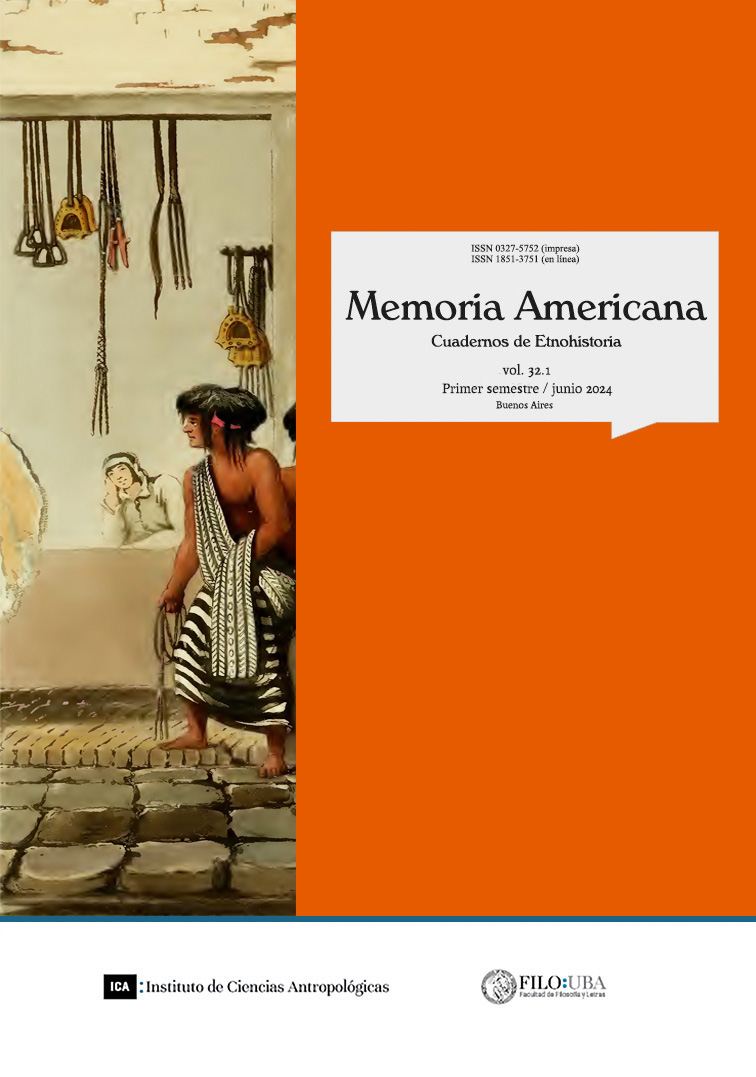Trading peoples. Trade between Buenos Aires and the indigenous peoples of the southeastern Pampas, 1740-1830
Abstract
Traditionally, scholars have pointed out the harmful effects of indigenous mercantile participation: acculturation, economic dependence and social polarization. In this article, we offer evidence that gives a more nuanced image in the case of the indigenous communities of the southeastern Pampas between the 18th and 19th centuries, where indigenous mercantile participation was neither forced, nor even induced, but enthusiastically spontaneous. Taking the evidence of a century of inter-ethnic trade, we observe that the indigenous peoples became avid consumers, skilled traders and industrious producers of goods. They zealously defended their freedom to trade, set up commercial ports in their territory and became part of local, regional and overseas trade networks. In short, the indigenous peoples of the southeastern Pampas created their own forms of mercantile participation that earned them the label of “trading peoples” in the transition between the Ancien Régime and economic liberalism.Downloads
Copyright (c) 2024 Memoria Americana. Cuadernos de Etnohistoria

This work is licensed under a Creative Commons Attribution-NonCommercial-ShareAlike 4.0 International License.
Los derechos de autor son cedidos a Memoria Americana. Cuadernos de Etnohistoria, no obstante los autores podrán recuperarlos y reproducir su trabajo en otros medios o formatos previo envío de solicitud al Comité Editorial. En tales casos, deberá citarse a Memoria Americana. Cuadernos de Etnohistoria como primera publicación del trabajo y el mismo queda bajo una licencia Creative Commons CC BY NC SA 3.0 Attribution- Non Commercial -ShareAlike 3.0, la cual provee libre acceso inmediato a sus contenidos pues se rige por el principio según el cual hacer disponible -en forma gratuita- la investigación al público fomenta un mayor intercambio de conocimiento a nivel global.
Los autores deberán remitir el siguiente formulario de cesión de derechos y compromiso de originalidad:
Cesión de derechos y compromiso de originalidad
Al Comité Editorial de Memoria Americana, Cuadernos de Etnohistoria
Por la presente declaro ser el autor del trabajo titulado (nombre del artículo), el mismo es original y propio y no ha sido publicado en ningún formato o soporte con anterioridad.
En caso de ser aceptado para su publicación en Memoria Americana. Cuadernos de Etnohistoria (número/año) cedo los derechos editoriales que me corresponden por el aludido artículo para su publicación en todos los formatos que posea la mencionada revista.
Si quisiera publicar este artículo a través de otro editor o en otro lugar me comprometo a solicitar el correspondiente permiso por escrito al Comité Editorial de Memoria Americana. Cuadernos de Etnohistoria. De ser afirmativa la respuesta del Comité Editorial me comprometo a lo siguiente:
- especificar lugar, editorial y fecha de la primera publicación del artículo en la nueva publicación
- realizar esta republicación sólo luego de transcurridos un año calendario desde la fecha de la presente nota de cesión de derechos
FIRMA
Aclaración











